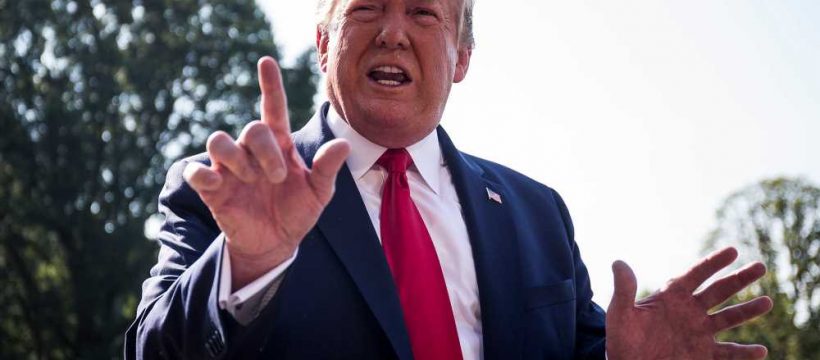Conservative: Trump Isn’t Fueling Hate
“There are plenty of reasons not to blame [President] Trump for last weekend’s slaughter,” argues Toby Young in The Spectator. For starters, the killer in El Paso, Texas, “railed against climate change . . . and the president is a climate change skeptic.” The Dayton shooter “was a self-described ‘leftist’ who praised Elizabeth Warren.” Nor is it the case that hate crimes are on the rise under Trump. As the Bureau of Justice Statistics noted last year, while “reported hate crimes increased from 104,400 to 107,900 between 2016 and 2017, unreported hate crimes fell from 92,100 to 86,900, meaning the total number actually fell in the first year of Trump’s presidency.” Bottom line: “It’s incredibly hard to show that inflammatory rhetoric, whether on the right or the left, causes violent crime.”
Libertarian: The Folly of Criminalizing “Domestic Terror”
A “growing chorus” may be “demanding stronger laws targeting politically motivated violence” after the mass shootings in El Paso and Dayton. But making domestic terrorism a federal crime is a “very bad idea that’s bound to threaten liberty more than it hampers terrorists,” warns J.D. Tuccille in Reason. Some of the push for this move comes from “rent-seekers,” like the FBI Agents Association, “a labor union representing law-enforcement agents who would gain another law to enforce.” But it isn’t clear whether “there’s any need to pass more laws . . . Murder and related forms of mayhem are already illegal in every state, and there’s no reason to believe that the federal government is better prepared to prosecute crimes than state and local authorities.”
Liberal: Hey, Dems — Don’t Jump Off the Cliff
The Democrats’ debates on CNN were “the political version of ‘The Bachelorette’ — and just as painful to watch,” grouses Peter Penn in The Hill. The cable networks “want gladiator TV,” and “the candidates have taken the bait” and “set their sights on each other.” They have even criticized former President Barack Obama, “a man with a popularity rating greater than 90 percent among Democrats in virtually every poll.” And their proposals, like abolishing private insurance, taxing the middle class, free college and decriminalizing illegal immigration, are losers. In pushing such plan, Democrats risk “snatching defeat from the jaws of victory.”
Economist: No, Trump’s Tariffs Won’t Steal Christmas
Slamming a Washington Post business story that claimed President Trump’s latest China tariffs would push toy prices up 17 percent and laptops by $120, Spencer Morrison explains at American Greatness that Trump won’t “ruin Christmas, and the price of toys will not rise perceptibly. Why? Because tariffs don’t work like sales taxes.” Pundits made the same mistake about the president’s 40 percent tariffs on washing machines imposed early in 2018, yet the “laundry equipment” component of the Consumer Price Index — based on actual store prices — is up only mildly above other inflation. Why? “Tariffs are levied on the first sale price — the price paid to foreign vendors by American companies or their middlemen,” which is only a part of the final price for consumers. So a 10 percent tariff can mean you pay just 1 percent more. Also, “you can avoid paying tariffs entirely by buying American.”
Culture critic: A Pause Before You Post
Imagine creating an online post, pressing a button to post it and then having to wait before it goes live. That, suggests Jonathan Rauch at The Atlantic, could give people a chance to think twice before posting something they will regret and give social-media companies a chance to vet the content. The pause could be 10 minutes, an hour or “user-selected.” But during that time, “something might happen”: Users might get a warning that a claim in the post is “disputed by leading fact-checkers.” They may be asked, “Are you sure you’re ready to share this with the world? Remember, it will be out there forever.” And platforms like Facebook and YouTube might be able to block, say, “snuff” videos in advance. Slowing down, concludes Rauch, “would help us put our better selves forward, perhaps often enough to make social media more sociable.”
— Compiled by The Post Editorial Board
Source: Read Full Article
